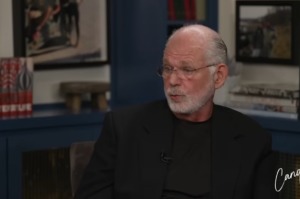Core Sleep and the Effects of Insomnia
There is considerable evidence suggesting that for many individuals, performance on alertness, memory and problem-solving tasks can be maintained for extended periods of time with about 5.5 hours of sleep, or what is called “core sleep”:
These findings on the effects of sleep loss suggest that it is important to differentiate between moderate sleep loss (5 to 6 hours of sleep) and severe sleep loss (4 or less hours of sleep). The latter produces more significant effects on daytime performance.
Core sleep (5.5 hours of sleep) probably maintains performance because it contains 100% of our deep sleep, which is the most important stage of sleep and 50% of REM sleep, which is the second most important stage of sleep. Core sleep does not have to be obtained continuously. In fact, research on soldiers, fire fighters, rescue workers and astronauts suggest that by breaking up sleep into multiple periods throughout the day (for example, 6 30-minute naps taken every 4 hours), sleep can be reduced below core sleep — to as little as 3 hours per day — without significant consequences.
Another important finding about core sleep is that, if it is not obtained one night, the brain will create increased pressure to obtain core sleep the next night. How do we know this? On nights after core sleep loss, the brain compensates by producing an increased percentage of deep sleep and dream sleep, which explains why we don't have to recover all of the sleep we lose. (The fact that we don't need to recover all the sleep we lose argues against the accumulation of a sleep debt). This finding, coupled with the fact that insomniacs average 5.75 hours of sleep, suggests that the brain seems to be programmed to obtain core sleep.
Sleep is similar to food in that our body also needs a core amount of sleep to function. Most individuals, however, eat more than their core food requirements to feel good. Similarly, we can maintain performance with core sleep for extended periods of time, but most people don't feel their best unless they obtain additional sleep, or what some sleep researchers call optional sleep (which consists mainly of REM and stage 2 sleep and can be reduced or extended without major effects on performance). In this sense, the impact of losing part or all of a night's sleep is similar to skipping a meal or fasting for the day. Just as it is possible to go without food for several days without serious consequences, we can endure a few days without sleep. Yet, missing sleep creates more anxiety than missing food.
This is not to say that we only need core sleep — most individuals need more than core sleep to feel optimal and energetic. However, believing that one can maintain performance on core sleep is a highly effective strategy for reducing anxiety about sleep and improving sleep.





























